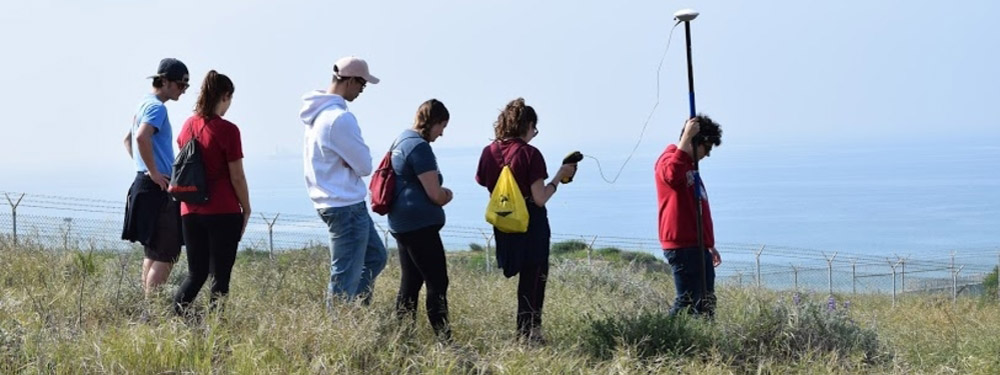
Summer Student Research Assistant Program
LMU's Coastal Research Institute (CRI) Summer Internship Program provides hands-on learning opportunities using applied science in restoration, environmental monitoring, and ongoing research projects. This opportunity is available to Seaver College undergraduate students each summer with continuous work during the following academic year. This program provides students with a $2,500 summer scholarship to work closely with a project mentor for 25-30 hours per week over the 6-week Summer Session I period. Housing over the summer is available on a limited basis. There is an additional $500 available for the 20-30 hours of work completed over the subsequent academic year.
- View the 2026 CRI Summer Intern flyer here.
- Complete the 2026 CRI Student Internship Application here.
APPLICATION FORMS AND RESUMES DUE 11:59 PM (Pacific Time), Friday, February 27, 2026.
Please direct any further questions to Nicole Bouvier-Brown, CRI Executive Co-Director at Nicole.Bouvier-Brown@lmu.edu.
Faculty Opportunities
In support of TBF’s Comprehensive Monitoring Program, faculty are invited to join CRI in monitoring and researching key habitats within the Santa Monica Bay with the goal of developing a long-term monitoring plan that can continue to be carried out year to year. For summer 2026, focus will be placed on sandy shores and rocky intertidal habitats, though proposed projects can address any aspect of these habitats. Faculty can earn up to $6000 for their contributions with opportunities for continued funding in future years. The stipend amount received will be determined based on level of faculty involvement.
There are two ways in which faculty can conduct their proposed monitoring project, each begins over Summer Session I from May 18 to June 26, 2026:
- The first involves concentrated research on developing methods to enhance the current monitoring efforts. The goal is to train students during the summer such that they can carry on the work during the following academic year
- The second way that faculty can participate is through the development of a course module that would be integrated into a course offered in fall 2026 and/or spring 2027. This coursework integration pathway incorporates environmental monitoring into the structure of an existing course via student-centered work that is not only valuable to the students’ learning but also produces meaningful data regarding the state of Santa Monica Bay. This could involve a field trip to collect data, the analysis of samples in the lab, processing of geospatial data in ArcGIS, etc. Student involvement (funded by CRI) is optional during the course development.
*An important aspect of both pathways is the development of a Quality Assurance Project Plan (QAPP). A QAPP is a document that describes the activities of data collection and analysis for the project. All projects will involve a QAPP, whether they are developing a new one or maintaining/amending an existing one. If the project is new, QAPP development will be done during the first year of funding with support from CRI staff. If faculty are continuing an existing project, they may need to amend a QAPP.
Please direct any further questions to Nicole Bouvier-Brown, CRI Executive Co-Director at Nicole.Bouvier-Brown@lmu.edu.
Future Opportunities
As CRI grows, we hope to host post-docs and/or visiting scholars to study and research with the institute. These visitors may also have some teaching responsibilities.